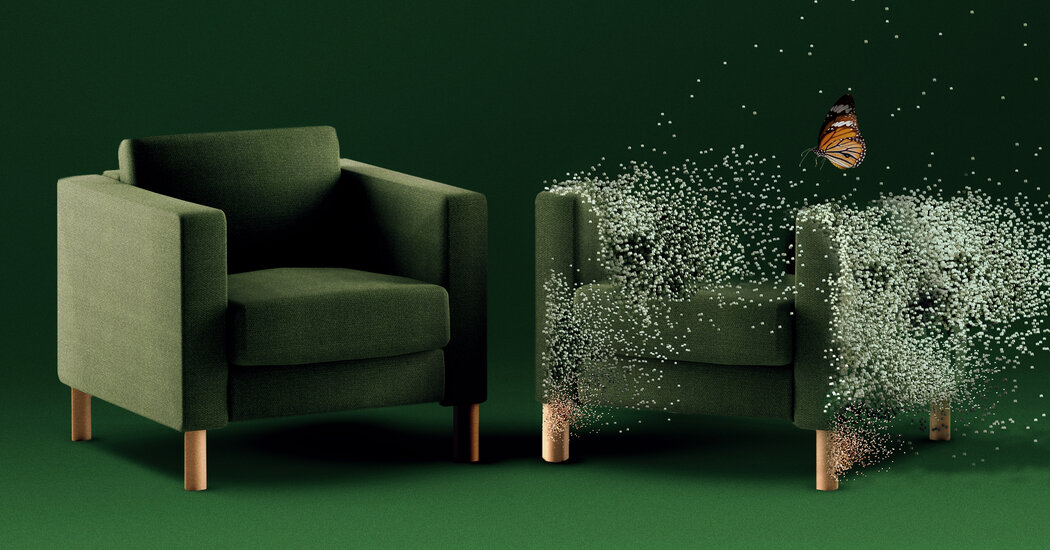[ad_1]
If you’ve ever been in therapy, you know that the relationship is unique. You might tell your therapist things you wouldn’t share with your loved ones. “It’s the most intimate professional relationship you’ll ever have,” said John Norcross, a professor of psychology at the University of Scranton. So what should you do when you’re ready to move on?
Even when people feel as if they’ve gotten what they need from therapy, leaving can bring up anxieties, Dr. Norcross said. And while clients are the ones to initiate most therapy terminations, not everyone goes about it in a healthy way, he explained.
It may be tempting to ghost your therapist once you realize you’re through, said Dr. Norcross, who has researched the ways people end therapy. But that’s not the most productive way to handle the situation.
Ending therapy is an important part of treatment, said Derek Seward, an associate professor of counseling and counselor education at Syracuse University. It provides an opportunity to use the tools you’ve most likely strengthened during your sessions, he said.
When people leave abruptly or avoid “the difficult work of saying goodbye,” Dr. Norcross said, they’re often repeating “the avoidant, nonassertive behaviors that brought them in.”
But how do you decide if it’s the right time to end therapy, and how do you broach the conversation? I asked therapists for advice.
Assess your initial goals.
Ideally you established objectives when you started counseling, said Dontea’ Mitchell-Hunter, a psychotherapist in Savannah, Ga. But even if you didn’t, ask yourself: Have I developed the coping skills to navigate life on my own?
You and your therapist should evaluate your progress, she said. “I’m always looking for, ‘How are they managing their stuff, their emotions, their triggers outside of me?’” Mitchell-Hunter said. “Because the work of being in therapy is really outside of the therapy room.”
Be direct.
“In any significant relationship, there’s leave-taking, or being able to say goodbye,” Dr. Norcross said. That includes therapy.
If you’re leaving because you’re dissatisfied, he said, the do-not-ghost rule still applies. Have a conversation, both as a professional courtesy to your therapist and as a fortifying exercise for you.
Express your displeasure with whichever elements of therapy aren’t working, and explore if anything can be done to change the course of treatment, Dr. Norcross said. “Every competent therapist will thank a patient for their courage and candor,” he added.
If you can’t muster the nerve to do it face to face, start with an email or text, he said.
Construct a post-treatment plan.
Dr. Seward recommended going over scenarios that might trigger you after you leave therapy and role-play how you would handle them. If a client has been having issues with being more assertive in a romantic relationship, he might practice being that client’s partner, he said.
Then talk about what you should do if you run into a crisis and want to come back. Decide on the specific ways that you can get in touch, such as email, Dr. Seward said. He added that some counselors may not be able to take a client back, so discuss other possibilities.
If you live in the same area, Dr. Seward added, talk about what you can expect if, for example, you bump into each other in the supermarket. Therapists are bound by an ethical code not to break confidentiality, he said.
“Many counselors will say, ‘I want you to know that if I see you out on the street, I’m not going to say hello to you,’” he said. They might make it clear that their client can greet them first, he added, “but we’re not going to restart our relationship and start a whole discussion around whatever issues that we worked on in counseling.”
Make your last session meaningful.
All three experts recommended commemorating your last session in some way.
Parting is a sign of growth, Mitchell-Hunter said. She asks her clients questions such as: “How do you feel like you’ve grown? What has been the most helpful for you?”
Mitchell-Hunter said that she called her final sessions “graduation.” “Because I think that’s something worth celebrating,” she said. “We did all this hard stuff together, and you feel like you’re good to go out there on your own? Hell, yeah! Congrats! Graduate!”
Dr. Norcross said some of his clients had brought in pastries or cakes on their last day. Other patients cry. “It’s all normal,” he said.
Will eating certain foods improve your skin health?
Do foods such as fruits and vegetables give us clearer skin? Does eating too many processed foods worsen conditions such as acne? Here is what the science says about the effect that diet has on our skin.
Read the article: How Your Diet Affects Your Skin
The side effects from your Covid vaccine may be signs of higher antibody levels.
Worried about the chills, fatigue and headaches that can follow a Covid shot? While the symptoms can be unpleasant, a new study suggests that people who have a rough time after vaccination are likely to be well protected from the virus.
Read the article: Feeling Terrible After Your Covid Shot? Then It’s Probably Working.
[ad_2]
Source link

